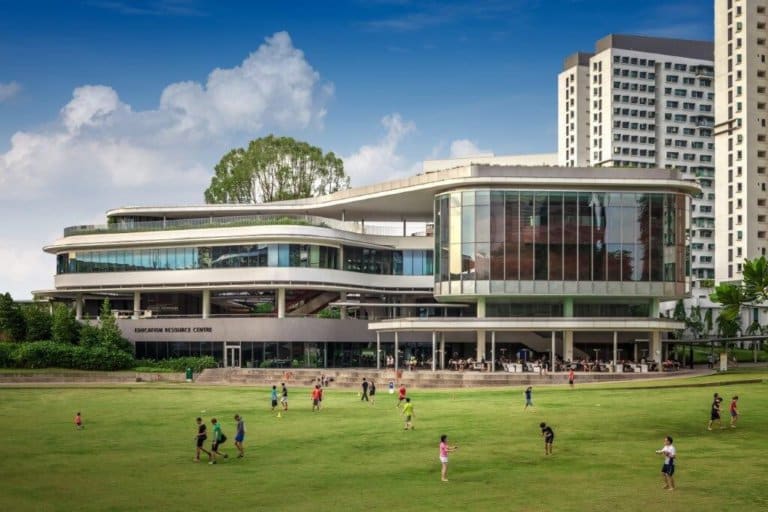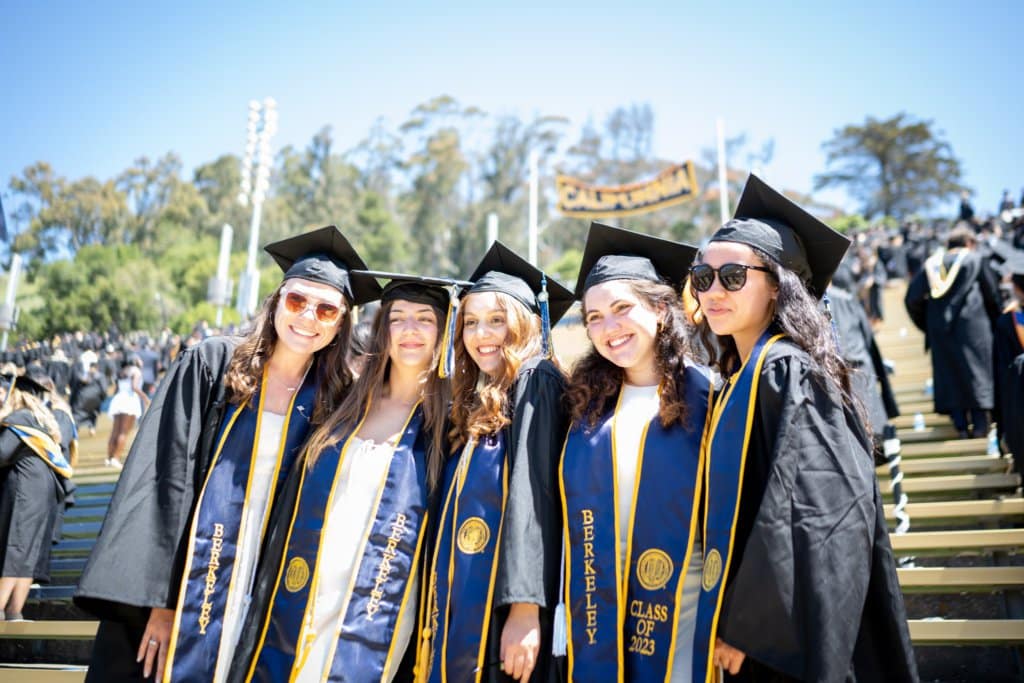
It is said that education is not the filling of a pail, but the lighting of a fire. Not many disciplines can claim to ignite such sparks. Languages and linguistics, however, can. More than just means to help us master lingua francas and identify accents, these are subjects that explore what it means to be human today. Who are we? What are our ideals? How different am I from a stranger?
The best languages and linguistics degrees seek — rigorously and passionately — to illuminate the many answers to these questions. In a world where wars are fought on battlefields and on cultural fronts, keen insights into the seemingly infinite list of human expression and universal ideas are crucial. They show us there is no one way to think, act or look at the world. There are many, each as valued as the next.
The following languages and linguistic degrees are paths to a few types of fluency. First, in what we speak, write, and read. Perhaps more profoundly, they also ensure another type of fluency — one of graceful, effortless movement through the global flow of ideas today and in the future.
National University of Singapore

At the National University of Singapore, you’ll meet other students from all over the world and get inspired by some of the best faculty members in Asia. Source: National University of Singapore
Ranked eighth in the world and first in Asia, the National University of Singapore (NUS) — the country’s flagship university — brings a global approach to education, research and entrepreneurship with a focus on Asian perspectives and expertise.
The Department of English, Linguistics and Theatre Studies is exemplary of this cutting-edge global hub. At the heart of this department is its distinguished faculty, renowned scholars and researchers at the forefront of academic inquiry — most of whom have degrees from top programmes around the world. They lead programmes like the MA in Theatre and Performance Studies (Coursework), the first of its kind in Asia. Tapping into the department’s world-class expertise in Asian performance within international contexts, the programme combines hands-on practice-based research, intermedial study of performance across theatre, film, and literature, as well as digital skills in humanities research.
The MA in English Language and Linguistics (Coursework) is just as excitingly broad in scope, covering topics including language acquisition, sociolinguistics, discourse analysis, language endangerment, psycholinguistics, and formal linguistics. Graduates are set for different careers in language teaching, translation, and language technologies, and they are prepared for further academic studies. Whichever route they choose, they stand out for holding a degree from a university that’s ranked #12 in the world for Linguistics in the QS World University Rankings by Subject 2023.
What makes the MA in Literary Studies (Coursework) distinct is its focus on a region defined by its history of international exchange. As students explore English literatures in relation to questions of culture, migration, and power, especially as it relates to empire, colonialism, or the nation’s reorganisation within today’s global economy, they enhance their knowledge of the discipline as well as their writing and research skills. Intensive seminar-based engagements with faculty members further enrich their learning, something not offered by other MA programmes that are comparatively less structured.
The setting? A dynamic city-state that’s constantly evolving. From traditional temples and historical “kampongs” to futuristic skyscrapers and super-stylish cafes and shops, Singapore is the ideal destination for anyone curious about the world and its cultural fusions. As a cosmopolitan gateway to Southeast Asia, languages and cultures abound here, coming alive in everything from mundane daily interactions to the many fairs and festivals that grace its arts and entertainment scenes. To learn more about NUS’s one-year MA programmes and how they can foster global citizenship, career growth, and critical acumen, click here to join the Department of English, Linguistics and Theatre Studies.
UC Berkeley

The Department of Linguistics at UC Berkeley supports a broad view of language and diverse approaches to its analysis. Source: UC Berkeley/Facebook
University of California, Berkeley (UC Berkeley) needs no introduction for its academic and research excellence — especially after being named the number one public university by US News and World Report.
The university is home to an excellent Linguistics Department renowned for its study of language and other diverse subfields. With a long-standing reputation and a commitment to groundbreaking research, the department provides an enriching environment for students interested in linguistics.
The department’s faculty boasts scholars and researchers who are leaders in their respective fields. Curriculum is comprehensive, covering foundational and advanced linguistics topics. Students have the opportunity to study various aspects of language, engaging with theoretical frameworks and analytical methods. The curriculum encourages critical thinking, data analysis, and problem-solving skills, equipping students with a solid foundation in linguistic theory and methodology.
Here, students have ample opportunities to engage in independent research projects or collaborate with faculty members while also participating in fieldwork. Students benefit from access to a wide range of resources, including well-equipped laboratories, language archives, and computational tools, facilitating their research endeavours.
Seminars and workshops further foster a vibrant intellectual community. They bring together students, faculty, and distinguished guest speakers, creating a dynamic intellectual exchange and collaboration platform.
University of Cambridge

The University of Cambridge has ranked first overall in the Complete University Guide for 2024 for both Linguistics and Modern and Medieval Languages. Source: University of Cambridge/Facebook
Linguistics at the University of Cambridge is internationally recognised, ranking third in the QS World University Rankings by Subject 2022. Among the world’s #2 university’s many exceptional departments, the Faculty of Modern and Medieval Languages and Linguistics shines as a vibrant and dynamic hub of linguistic inquiry and exploration.
Here, a linguistic education is informed by research of the highest quality. The academic staff consists of leaders in world-class scholarship and teaching in four areas: linguistics, film and screen studies, history and thought, and literary and cultural studies. Researchers in the Faculty also work on different aspects of modern languages, including French, German, Italian, Russian, Polish, Ukrainian, Spanish, Catalan, and Portuguese, with medieval languages ranging from Occitan and Old English to Gothic and Old Church Slavonic.
They bring their insights and expertise to small group “supervisions,” medium-sized seminar discussions, language classes, and lectures. Dialogues with writers like Shirin Ramzanali Fazel, one of the pioneers of Italian migration literature, let students tackle a range of important literary texts outside the set readings required for the non-language papers. Students could post questions such as: To what extent do postcolonial narratives destabilise national histories? What are the main challenges in translating one’s own works between different languages, including the language of the colonizer?
Facilities are equally impactful. The MMLL Faculty Library offers easy access to the university’s research areas and is affiliated with the University Library, a research library of international renown. There’s also the University Language Centre, which supports students and staff by promoting language learning.
University of Melbourne

At the School of Languages and Linguistics, best practice in learning languages at all levels is combined with leading research in key areas to help students unlock their linguistic potential. Source: The University of Melbourne
The University of Melbourne, Australia’s number 1 university (QS World University Rankings 2024), effortlessly shapes graduates into well-rounded, thoughtful, and skilled professionals who can positively impact the world.
Its School of Languages and Linguistics (SOLL) is equally excellent, ranking #1 for Modern Languages and Linguistics in Australia (QS World University Rankings 2022). The division caters to those interested in pursuing teaching or research programmes on European languages, linguistics, and applied linguistics.
The Bachelor of Arts aims to build interdisciplinary knowledge, community leadership and cultural awareness. Students on this path could, at the same time, gain fluency in one of the 12 languages taught by the Diploma in Languages.
Advanced learners from various countries gravitate toward the Master of Applied Linguistics (MAL), specifically for its ability to unlock various career opportunities. It uniquely integrates teachings from SOLL’s English for Specific Purposes programme, making it an apt choice for all English educators looking to upskill.
The two-year programme complements their existing expertise with a research component to give them a competitive edge in language teaching, language assessment and language program evaluation. It offers specialisation in three areas: Teaching English to Speakers of Other Languages (TESOL), language testing, and English language.
Besides SOLL’s strength in second language learning and language testing, the school also has specialised expertise in language programme design and evaluation, which is handy for professionals teaching English academic subjects in certain countries.
*Some of the institutions featured in this article are commercial partners of Study International







